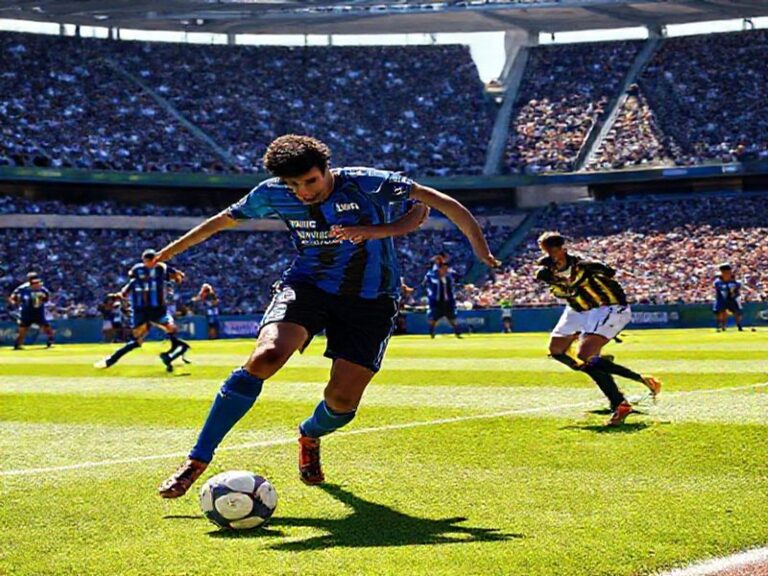Nottingham Forest: How a Midlands Club Became a Global Anxiety Index
Nottingham Forest: A Parable of Hope, Hubris, and the Global Football Funnel
By Our Man in the Cheap Seats, somewhere between the Trent and the Tigris
On a damp Tuesday in January, while the World Economic Forum was busy recycling last year’s buzzwords in Davos and Elon Musk was still deciding which government to troll next, Nottingham Forest Football Club quietly made the kind of decision that would have caused a minor revolution in any other industry: they fired yet another coach, the fourth in eighteen months. To most of humanity—currently distracted by the planet’s slow-motion barbecue—this was a non-event, a footnote in the sports agate. Yet in the micro-cosmos of global football, the sacking was a tremor felt from Lagos betting shops to Singaporean hedge funds. Forest, you see, is no longer merely an English football club with a pleasant accent and two European Cups gathering dust; it is a case study in how the modern game exports English anxiety to every corner of the Earth.
The club’s Saudi-backed owner, Evangelos Marinakis—who also controls Olympiacos and, according to persistent rumors, several maritime insurance companies with creatively flexible ethics—has been pumping money into the squad like a hedge fund injecting adrenaline into a dying swan. The aim? Survival in the Premier League, that gilded cartel whose television rights now outrank several national GDPs. Every match Forest plays is beamed live to 188 countries, often at hours that suggest the broadcasters believe insomnia is a growth market. Each misplaced back-pass is thus dissected by insomniac analysts in Jakarta, each missed penalty cursed in Cantonese.
Forest’s global fanbase—nurtured during Brian Clough’s 1970s pomp when the club conquered Europe twice, a feat now as mythic as the Holy Grail but with worse catering—has been re-animated by Premier League oxygen. In Kathmandu, you can buy knock-off Forest jerseys stitched in sweatshops whose managers prefer the club’s retro badge because it requires less embroidery than Manchester City’s space-age crest. In Toronto, a supporters’ club meets in a pub that once hosted Nickelback album-launch parties, a downgrade in cultural capital that even the most loyal fan admits stings. Meanwhile, in Lagos, local viewing centers charge admission to watch Forest leak goals the way Nigerian pipelines leak crude: steadily, spectacularly, and with minimal official accountability.
The broader significance? Forest epitomizes the new feudalism of world football: a Midlands fiefdom owned by a Greek shipping magnate, sponsored by a bookmaker headquartered in Curaçao, training players from Senegal and New Zealand, all while praying to remain in a league whose economic gravity bends television schedules from Bogotá to Bangkok. Relegation would not merely dent local pride; it would vaporize tens of millions in broadcast revenue, sending tremors through betting markets and player-coin NFT portfolios. In other words, the emotional fate of a few thousand shivering fans on the banks of the Trent now moves currency fluctuations in places most of them couldn’t find on a dare.
And so, each managerial sacking is less a sporting decision than a quarterly earnings call performed with human sacrifices. The new coach—inevitably Portuguese, inevitably touted as “a project builder”—will be paraded before cameras like a hostage forced to read a confession. He will promise “identity,” “verticality,” and other buzzwords that translate loosely as “please let us finish seventeenth.” Fans will convince themselves that this time is different, because hope is the most renewable resource in sport, right after hamstring injuries.
When the inevitable relegation battle arrives, the club’s Twitter account—run by a twenty-five-year-old with a marketing degree and a caffeine addiction—will tweet motivational graphics featuring medieval fonts and wolves howling at the moon. Across the planet, 3 a.m. doom-scrollers will retweet these images adorned with prayer-hands emojis, thereby completing the feedback loop between East Midlands existential dread and global late-stage capitalism.
Come May, Forest will either escape by a point or descend into the purgatorial riches of the Championship, where the parachute payments are generous but the cameras are fewer. Either way, the world will keep spinning, Davos will mint new jargon, Musk will find a fresh regulatory body to taunt, and Nottingham Forest will remain what it has always been: a small, stubborn dream, leveraged, securitized, and streamed in 4K to a planet that can’t quite afford its own delusions but keeps buying season tickets anyway.







